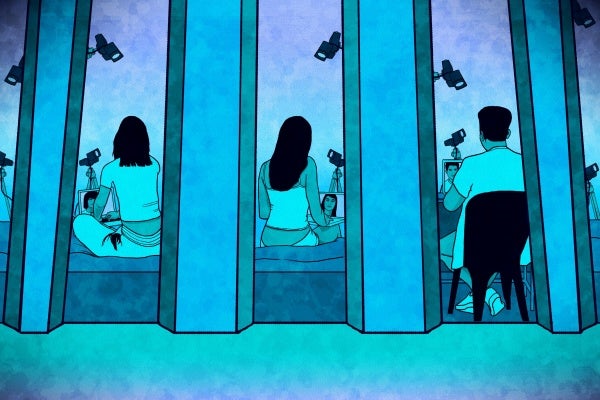Lire la version en français / Hier auf Deutsch lesen / Lea la versión en español
When you read about workers in a factory overseas being mistreated, you know there are solutions available to help improve their situation.
Better labor laws and their enforcement in the countries where factories are located is one step.
Companies selling products also need to tackle the problem by establishing clear standards for suppliers.
If we’re talking about clothes, for example, companies selling shirts, trousers, and shoes need to keep a close eye on their supply chains – set clear standards for factories and visit, in person, to monitor conditions. This can help see to it that workers at the source of production are fairly treated. The same goes for agricultural products, rainforest products, and a range of other goods.
It also includes online adult content.
Don’t let the nature of the business distract you. The same rationale above about workers’ rights and supply chain monitoring applies here.
The workers in this case are models who broadcast on adult platforms around the world. The workplace isn’t a factory but a studio – often basically just cubicles with cameras.
Human Rights Watch has published a new report on webcam models in Colombia. It’s one of the top producing countries in this global, billion-dollar industry.
Workers describe video-broadcasting from small, confined spaces with a lack of ventilation and seriously unsanitary surroundings. Some identify verbal, physical, and sexual abuse by studio management, and coercion to perform sex acts they find degrading or physically painful.
Wage theft can also be a problem, and some workers reported being fined for taking breaks to eat, using the bathroom, or washing their hands after a performance. There’s a lack of mental health support.
Some readers will hear these things and maybe think: why not criminalize the whole webcam industry or at least the studios?
At Human Rights Watch, our research has shown this isn’t the solution, because criminalizing sex work drives it underground, where even worse abuses take place.
Labor reforms are far better, as sex worker rights defenders broadly agree. These organizations helped us identify concrete steps platforms need to take to address labor abuses and root out sexual exploitation.
Of course, there are actions studios should take as employers, and the government of Colombia can do more to regulate the industry locally. But Colombian studios create content for online adult platforms based in the United States and Europe.
In other words, this is a global supply chain issue. And what works for other industries can work here, too.
Companies in the US and Europe can set standards and monitor how clothing and agricultural producers in their supply chains adhere to them to make sure factory workers and farm workers abroad are treated fairly.
They can do the same for sex workers in webcam studios around the world.






